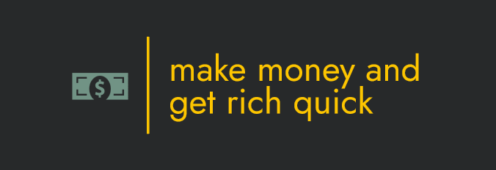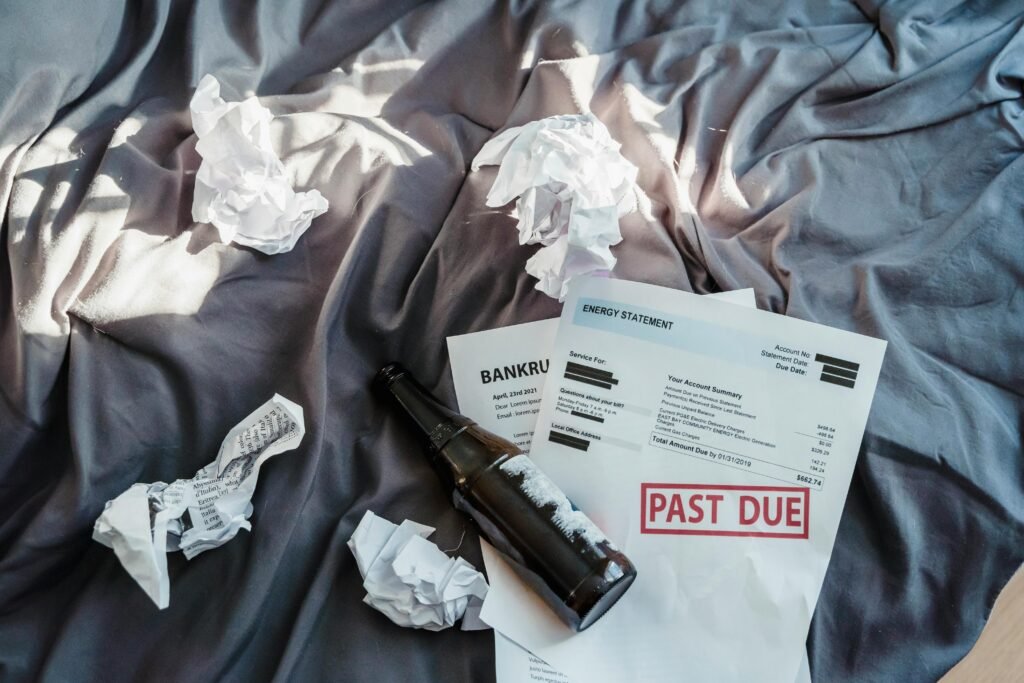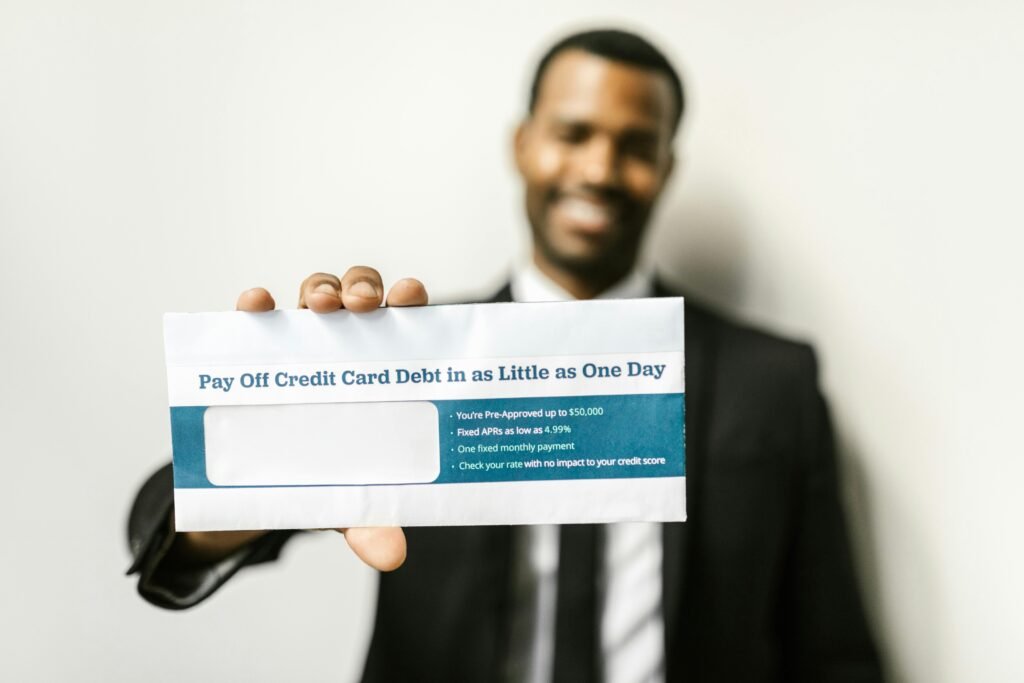How To Start Saving When You’re In Debt
Complete Guide: How To Start Saving When You’re In Debt How to start saving when…
Understanding Credit Scores
Understanding credit scores is important because it’s like a report card for how well you…
How Medical Debt and Credit Scores Are Connected and What It Means for You
Improve Your Credit ScoreA…
How To Get Out Of Debt With No Money: 7 Simple Steps
If you’re looking for how to get out of debt but feel like you don’t…
5 Ways to Ditch Your Credit Card Debt for Good
Credit card debtThe amount…
Debt can be overwhelming, but getting out of debt is possible—step by step. Whether you’re drowning in credit card debt, struggling with loans, or simply don’t know where to start, this guide will walk you through easy, actionable steps to get out of debt and become debt-free.
Understand Your Debt
The first step to get out of debt is to understand exactly what you’re dealing with. Many people are in the dark about how much they owe and to whom, making it harder to get out of debt. To fix the problem, you must start by understanding it.
Steps to Assess Your Debt:
- Make a List: Start by writing down all your debts, including credit cards, loans, and other outstanding balances.
- Add Up Your Debt: Total everything you owe. You might be surprised at how much it adds up to!
- Identify Interest Rates: Note which debts have high interest rates and which ones don’t.
Once you understand your debt, you’re one step closer to taking control and getting out of debt.
Make a Budget and Cut Back on Spending
Creating a budget is crucial to getting out of debt fast. It will help you track where your money is going each month, enabling you to focus your spending on debt repayment.
How to Create a Simple Budget:
- Track Your Income: Write down your monthly income, including job, freelance, or other sources.
- List Your Expenses: Break down your expenses, from rent and utilities to eating out and subscriptions.
- Cut Back on Unnecessary Spending: Eliminate non-essential spending, like dining out and subscriptions you don’t use. Every little bit helps in getting out of debt.
A budget helps you allocate more money to pay off your debt rather than buying things you don’t need, speeding up your journey to get out of debt.
Consider the Snowball Method for Paying Off Debt
If you’re wondering how to get out of debt fast, consider the debt snowball method. It’s a simple strategy that helps you get out of debt quickly by tackling your debts from smallest to largest.
Steps for the Debt Snowball Method:
- Pay Off the Smallest Debt First: Focus on paying off your smallest debt, regardless of interest rate, and pay it off quickly.
- Move to the Next Smallest Debt: Once you’ve paid off the smallest debt, direct any extra money toward the next one, and continue this process.
- Repeat: As you pay off each debt, you’ll have more money to apply to the next debt. You’ll be out of debt before you know it!
This method builds momentum, motivating you as you check off each debt and helping you get out of debt faster.
Prioritize Paying Off High-Interest Debt
If you want to get out of debt and save money in the long term, consider the debt avalanche method. It’s an effective strategy for prioritizing high-interest debt, which reduces the total interest you pay.
How to Apply the Debt Avalanche Method:
- List Debts by Interest Rate: Organize your debts from highest to lowest interest rate.
- Pay Minimums on All Debts: Continue making the minimum payments on everything.
- Focus Extra Payments on the Debt with the Highest Interest Rate: Put any extra cash towards the highest-interest debt.
- Move on to the Next Debt: Once the highest-interest debt is gone, tackle the next one on your list.
This method may take more time but can save you more money in the long run as you get out of debt.
Negotiate Your Debts
Getting out of debt quickly may involve negotiating with your creditors. Many lenders and credit card companies are willing to work with you to lower what you owe.
How to Negotiate Your Debt:
- Call Your Creditors: Contact your credit card companies and lenders. Be transparent about your financial situation and ask if they can reduce your interest rates or offer payment plans.
- Get Help if Needed: If you’re uncertain, hire a credit counselor who can negotiate on your behalf.
- Consider Debt Settlement: If your debts feel overwhelming, explore debt settlement. In some cases, creditors will accept less than the full amount you owe. However, be careful as this can affect your credit score.
Negotiation can help you get out of debt faster by lowering your debt or interest rates.
Consider Debt Consolidation
Debt consolidation is a great option if you have several debts and can’t keep track of them all. Consolidating debt means combining your debts into a single loan with a lower interest rate.
What You Need to Know About Debt Consolidation:
- Look for a Low-Interest Loan: If you qualify for a debt consolidation loan, use it to pay off other debts.
- Stay Disciplined: Stick to your budget, avoid accruing new debts, and keep up with the consolidated loan payments.
- Don’t Max Out Your Credit Cards Again: After consolidating, avoid using your credit cards again, or you may end up deeper in debt.
Debt consolidation can simplify your payments and help you get out of debt, but requires discipline.
Consider a Debt Management Program (DMP)
A Debt Management Program (DMP) might be the key to getting out of debt if you’re having trouble making progress. A credit counseling agency can help you create a plan to manage your debts.
Benefits of a DMP:
- Lower Interest Rates: The agency can potentially secure lower rates for your debts.
- One Monthly Payment: You only need to make one monthly payment to the counseling agency, and they’ll distribute it to your creditors.
- Professional Guidance: Credit counselors will help you budget and stay on track with your debt repayment.
Though a DMP won’t erase your debt, it makes it easier to manage and work toward getting out of debt.
Stay Motivated and Monitor Your Progress
Getting out of debt is a long-term commitment. Stay motivated and keep track of your progress, no matter how small. Celebrate each milestone, like paying off one credit card or making a dent in a loan.
Tips to Stay Motivated:
- Set Small Goals: Celebrate when you pay off small debts or reach certain milestones.
- Visualize Your Debt-Free Future: Imagine life once you’re free of debt, with no more monthly payments weighing you down.
- Avoid Unnecessary Spending: Stick to your budget and avoid temptations that lead to more debt.
Monitor Your Progress:
- Track your monthly payments and review your budget regularly.
- Reassess your strategy if your progress is slowing down.
The key to success is to stay focused and keep making progress toward your goal of getting out of debt.

For more helpful tips and strategies on how to get out of debt, consider visiting The National Foundation for Credit Counseling, a leading non-profit organization that provides trusted financial counseling services.





